Adecco Thailand recently orchestrated a survey that dives into the opinions and expectations of workers across Thailand about salary, work trends, new factors that affect their work life, etc. The goal of our survey is to capture the picture of today’s Thai labor market through the lenses of the workers, in hopes that businesses and job seekers out there could bring these insights to improve their hiring strategies and job application approach.
The data is a sum of opinions from over 1,300 survey respondents who were workers living in Thailand. Here are our key findings:
Work-Life Balance & Growth: Job Seekers’ Top Priorities
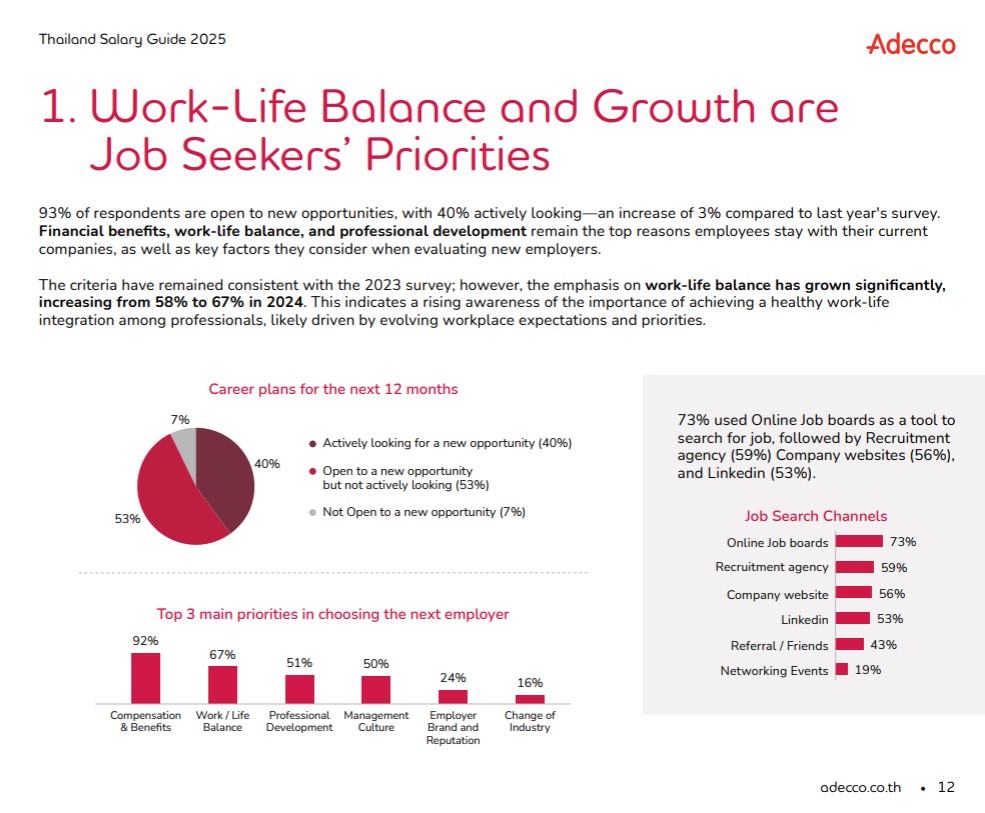
Let’s start with what today’s talents are looking for. Over 93% of our respondents are open to new opportunities, with 40% of them actively searching, which is a 3% increase compared to last year's survey. With online job boards being the top job searching tool for 73% of our respondents, while 59% of them go through recruitment agencies, 56% use company websites, and 53% of them rely on LinkedIn, when it comes to finding new jobs.
While opening for new roles, financial benefits, work-life balance, and professional development remain the key factors that attract talents to new companies. These are also one of the main reasons that keep employees with their current employers.
We can see that the emphasis on work-life balance has grown significantly, from 58% in 2023 to 67% in 2024, due to the rising awareness of healthy work-life integration among professionals.
Download Adecco Thailand Salary Guide 2025 to view the full survey analysis and keep up with the latest trend.
Digitization Are Transforming the
Workplace
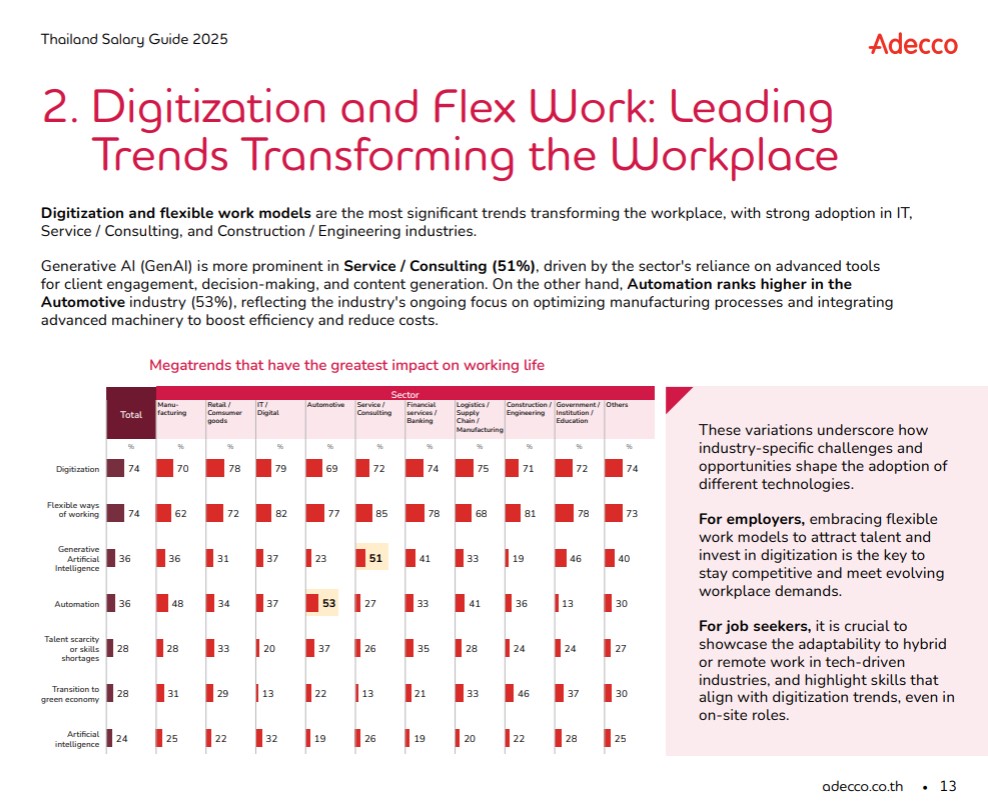
When it comes to the top trends, digitization and flexible work models are playing a big role in transforming the workplace. We see IT, service/consulting and construction/engineering industries fully embrace these trends.
Driven by its reliance on advanced tools for client engagement, decision-making, and content generation, Generative AI (GenAI) is making a big splash on the service/consulting sector (51%.)
On the other hand, automation gets an even warmer welcome from the automotive industry (53%), reflecting the industry's ongoing focus on optimizing manufacturing processes and integrating advanced machinery to boost efficiency and reduce costs.
AI Plays a Bigger Role from Both Sides of the Fence
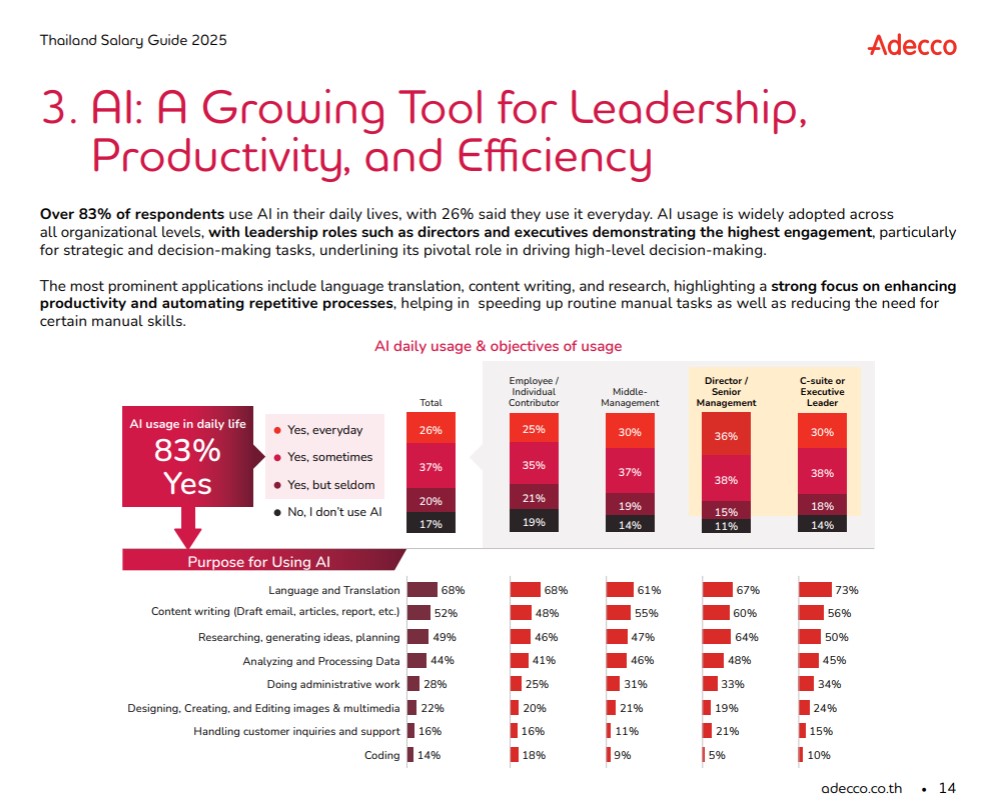
Over 83% of the respondents use AI in their daily lives, with 26% of them revealing that they use it every day. On the business side, AI usage is widely adopted across all organizational levels, with leadership roles such as directors and executives demonstrating the highest engagement, particularly for strategic and decision-making tasks, underlining its pivotal role in driving high-level decision-making.
The most prominent applications include language translation, content writing, and research, highlighting a strong focus on enhancing productivity and automating repetitive processes, helping in speeding up routine manual tasks as well as reducing the need for certain manual skills.
At the same time, 67% of job seekers feel either positive or comfortable with AI in the recruitment process. This shows that AI technologies are becoming an accepted and welcomed tool in job applications. We’ve discovered that respondents used AI for resume optimization, and job matching, with cover letter generation being the most common uses, consistently across industries.
Still, a smaller proportion remains skeptical or uncomfortable, citing doubts about fairness or unclear functionality, emphasizing the need for greater transparency and user-friendliness of AI.
This could be the reason behind why the use of AI in the recruitment process is still not as widespread as other industries. Evidently, only 49% of organizations are integrating AI into their hiring pipeline, with applications focused on candidate sourcing and screening. The drive behind their AI movement is the belief that using AI can save time.
Balancing AI and Human Touch & Filling the AI Skills Gap
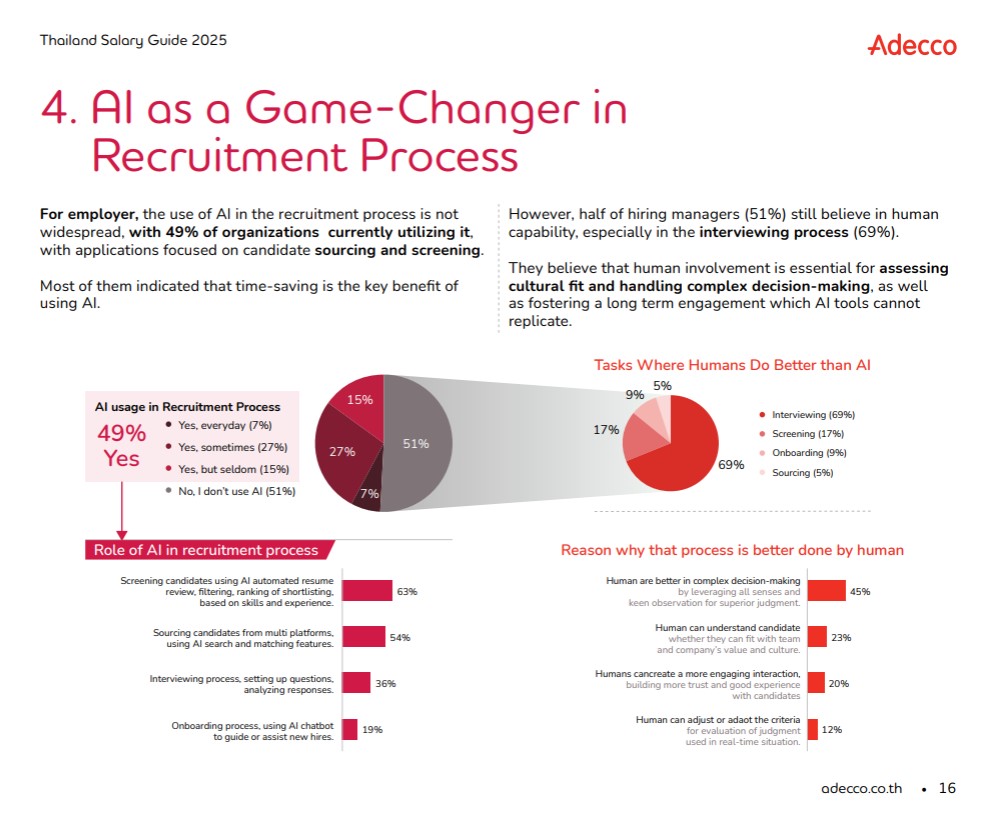
Half of hiring managers (51%) still believe in human touch, especially in the Interviewing process (69%.) They believe that human involvement is essential for assessing cultural fit and handling complex decision-making, as well as fostering a long-term engagement, which is something that AI cannot replicate.
At the same time, we see 36% of hiring managers remain skeptical about candidates using AI in job applications. They express concerns over potential biases or over-reliance on AI. This is where the need for AI skills comes in to fill the gap. However, only one-third of organizations provide AI training, usually limited to one or two sessions per year.
The training is least available in the automotive and construction sectors. This reflects a gap in equipping employees with advanced AI skills. Mostly, workers learn through hands-on experiments by themselves, and by watching available resources online, including videos, articles, or tutorial courses.
Needless to say, user-friendly tools that encourage hands-on experimentation are much needed in organizations. Structured training or certification programs are also other components that build GenAI experts in the workforce.
Key Skills for Staying Competitive in the Job Market
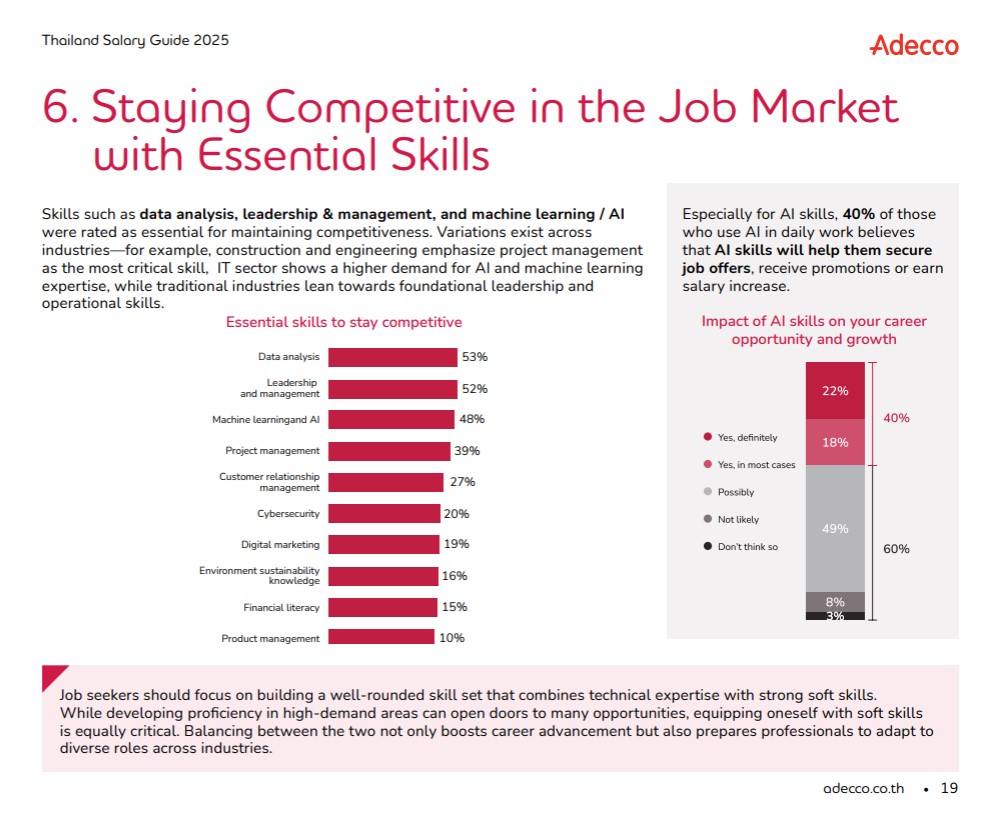
Aside from AI skills, data analysis, leadership & management are also essential for maintaining competitiveness, when looking at the big picture. Scoping down, essential skills are varied across industries. For example, construction and engineering sectors rate project management as the most critical skill. While the IT industry shows a higher demand for AI and machine learning expertise. Traditional industries, on the other hand, lean towards foundational leadership and operational skills.
When we look at AI, however, over 40% of those who use it in daily work believes that AI skills will help them secure Job offers, receive promotions or earn salary increase.
Conclusion
Wrapping things up, our 2024 survey paints a vivid picture of the evolving Thai labor market. Workers are now increasingly prioritizing work-life balance and professional growth, while digitization and AI are reshaping workspaces across industries. Despite the widespread use of AI, there remains a significant skills gap, highlighting the need for more comprehensive training programs. As businesses navigate these trends, the key is to leverage AI to streamline the hiring processes while maintaining human oversight to ensure balanced and effective recruitment.
On the other side of the fence, job seekers and workers must invest their time and effort in honing key skills like data analysis, leadership, and AI/machine learning in order to make themselves stand out among the crowd.



